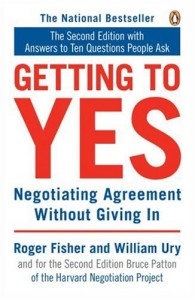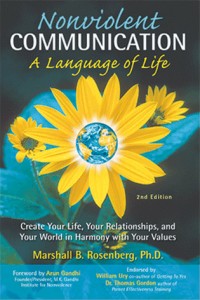 With all the “occupy” movements these days, it’d been increasingly on my mind how I can contribute in my way. One thing I believe we all need to do is find the best possible tools that educate people to be foremost compassionate, self-aware, respectful, and additionally also fair, logical, assertive, strong and resourceful. We need to learn these ways of living and work on creating a good life for our immediate communities, and people closest to us and strategically and insistently educate others, especially our children. As it spreads, it can bring forth a life of wellbeing through some of the most basic human needs for everyone, especially when we address big world problems where we reach out to the people who seem to be caught up in the big money rat-race and want our voice to be heard.
With all the “occupy” movements these days, it’d been increasingly on my mind how I can contribute in my way. One thing I believe we all need to do is find the best possible tools that educate people to be foremost compassionate, self-aware, respectful, and additionally also fair, logical, assertive, strong and resourceful. We need to learn these ways of living and work on creating a good life for our immediate communities, and people closest to us and strategically and insistently educate others, especially our children. As it spreads, it can bring forth a life of wellbeing through some of the most basic human needs for everyone, especially when we address big world problems where we reach out to the people who seem to be caught up in the big money rat-race and want our voice to be heard.
I just finished reading “Getting to Yes”, a book written by the Harvard Negotiation Project members Roger Fisher, William L. Ury and Bruce Patton. After years of reading and researching a variety of books on the subject of conflict resolution, connection and negotiations and having even written one, I was quite amazed that I hadn’t come across this brilliantly written publication. What was even more surprising are the striking similarities all these researches and practices have, even though they quite often use very different terms and definitions. Having a diversity of ways to connect to and care for people, understand and convey our requests and use negotiation techniques is a tremendous ability.
In this post, I’d like to explore the striking similarities between the negotiation principles of the “Getting to Yes” book, which are called the “Principled Negotiation Method” and one of my favorite conflict resolution techniques, the “Nonviolent Communication” by Dr. Marshall Rosenberg. The “Principled Negotiation Method” (PNM) has four principles and incidentally (or not), so does “Nonviolent Communication” (NVC):
1 – “Separate the people from the problem” (PNM) :: “Empathize” (NVC) As Fisher, Ury and Patton explain, when emotions run high, they need to be dealt with separately and not mixed with the actual issues at hand. Marshall explains the power of empathy in similar ways by pointing out that feelings need to be connected to. Most importantly, people need to receive empathy before we talk about a particular challenge or succumb to any criticisms and evaluations.
We need to learn to foremost find empathy for our own emotions and then learn to empathize with others. Doing this will diffuse a conflict, make people less reactive and negatively primed, it will create emotional connection, trust and make negotiations more productive. If your discussion is not going well, it’s probably because you haven’t emotionally connected to the other person (or yourself), and vice versa, if you haven’t connected to the other person (or yourself), the discussion will likely not be smooth. Many discussions tend to especially be hard since very often people resort to using various techniques of emotional pressure like: bribes, threats, deliberate deception and manipulations. – Make sure to take care of yourself emotionally and know how to truly hear and compassionately care and empathize with the other side when stepping into a discussion or negotiation.
2 – “Focus on Interests, Not Positions” (PNM) :: “Identify Needs” (NVC) Fisher, Ury and Patton define people’s interests as their needs, desires, concerns, and fears. They encourage exploring everyone’s interests rather than stubbornly sticking to their own positions or the conflict itself. Rosenberg analogously focuses on people’s needs, which directly relate to specific feelings. The PNM definition of “interest” is basically same as “need”, although it is slightly misleading as they describe it as a “concern” and “fear”, which falls more in the category of feelings from the first principle.They also point out that interests can be shared or divergent, yet they also suggest at times that interests can conflict. Marshall points out more clearly that needs never conflict, only strategies do (which will be discussed in the next principle). For example, a need for respect is always universal and needs to be recognized as being present or absent, but it is never in conflict with other needs for respect. – Make sure to always work on identifying your interests/needs by being attuned to your feelings and keep your focus on them when in a discussion or negotiation.
3 – “Invent Options for Mutual Gain” (PNM) :: “Create Strategies” (NVC) Be hard on the problem, soft on the people is a great approach Fisher, Ury and Patton suggest. This is the part that points out that, while we can fully empathize and be compassionate with others, we can still be assertive and insistent, as long we put our focus on the problem. The way Marshall explains this is by focusing on making different strategies in order to support everyone in getting their needs (or interests) met. I love Fisher, Ury and Patton’s brilliant explanation of how the attempt to value and connect with people while being hard on substantive issues increases pressure to find effective solutions, through a psychological term called cognitive dissonance.
I also loved Fisher, Ury and Patton’s detailed description of the brainstorming sessions, where people face the problem (literally) together and temporarily eliminate judgment to come up with a variety of potential options and strategies: “Invent first; decide later”. One of the best pieces of advice in the whole book is to always have a strongly developed BATNA – Best Alternative to a Negotiated Agreement, so that in any discussion, one’s negotiation position is also determined on how attractive one is to the option of not reaching agreement. – Make sure that you have created mutually beneficial options and practical strategies with a clear BATNA when going into any discussion or a negotiation.
4 – Insist on Using Objective Criteria :: Make Observations (NVC) Even amazingly well crafted options (i.e. strategies) will very often be in conflict with other people’s ingeniously crafted ones. “The more seriously you disagree with someone, the more important it is that you are able to deal well with that disagreement.“ That’s why Fisher, Ury and Patton recommend using objective criteria in these circumstances, standards of fairness, efficiency, or scientific merit around a particular problem, which can produce an option/strategy that is wise and fair. The idea is to shift the process from positional bargaining toward the search for objective criteria.
In Marshall’s case, these are observations, which always directly relate to applicable needs that we identified. It’s important to “never yield to pressure, only to principle/reason”. Especially while under pressure, people need to reframe an issue toward gathering data based on concrete observations that are founded on everyone’s most basic needs. For example, one might ask you why you don’t trust him/her, which can take the focus away from solving a current problem; in this case a great way to reframe is to say that it’s not a matter of trust but finding the best possible solution that meets everyone’s needs. “It is easier to defend principle than an illegitimate tactic.” Another great suggestion is to state objective facts in interrogative ways like: “Please correct me if I’m wrong”, give the facts a possibility that they are inaccurate and then collectively work on finding the best answers.
 Make sure to always aim toward collectively and mutually creating solid objective criteria and observations that are in accordance with everyone’s needs when in a discussion or a negotiation. Just like wanting to learn anything in life, simply reading all this above is not enough. We need to collectively put to practice our connecting with ourselves and the world around us and learn to make effective change. I applaud to all those who do their best and even put themselves on the line daily to create a better world for everyone. The more we know how to effectively do this collectively, the more these ways will prove themselves efficient and less costly to all human relationships.
Make sure to always aim toward collectively and mutually creating solid objective criteria and observations that are in accordance with everyone’s needs when in a discussion or a negotiation. Just like wanting to learn anything in life, simply reading all this above is not enough. We need to collectively put to practice our connecting with ourselves and the world around us and learn to make effective change. I applaud to all those who do their best and even put themselves on the line daily to create a better world for everyone. The more we know how to effectively do this collectively, the more these ways will prove themselves efficient and less costly to all human relationships.
Finally, remember that if a person is only appealing to one’s own interests and needs when working on resolving any conflict, without attending to the other side’s, even if one believes that the other side is “wrong”, one is not truly negotiating and connecting but “waging war” and manipulating and it is very easy to get caught up in this pit-fall. The act of Love includes everyone’s needs.
Thanks for reading, please share and comment, and if you send me any questions, I can respond to them in this post
Ivan
